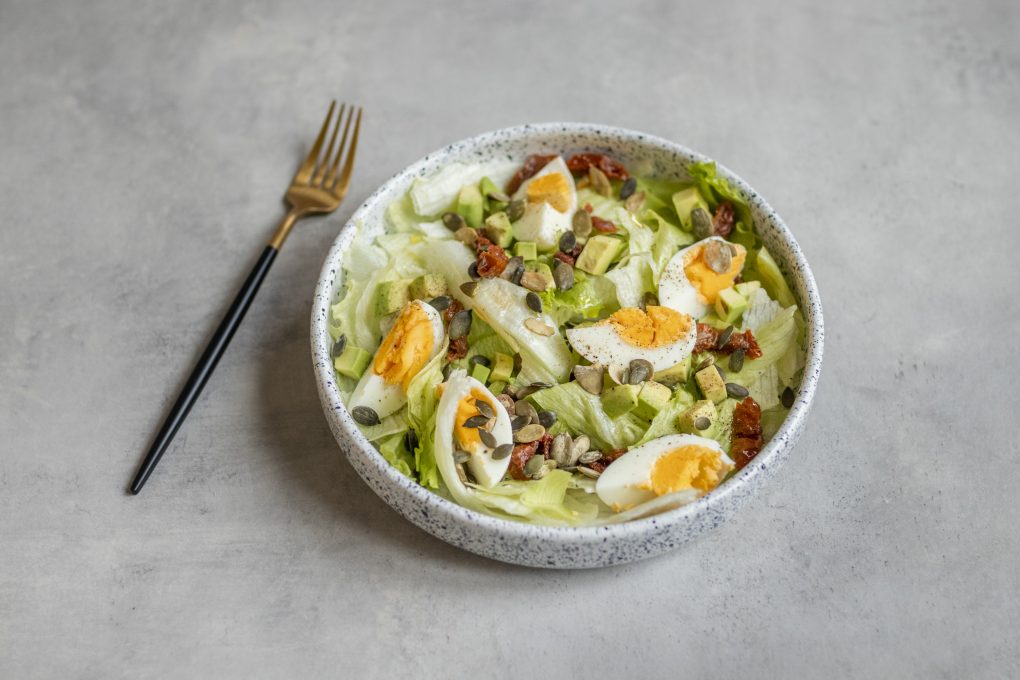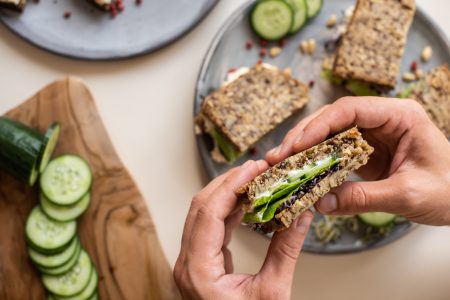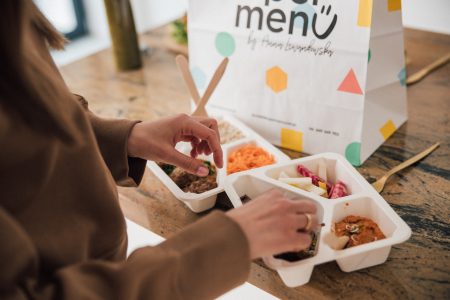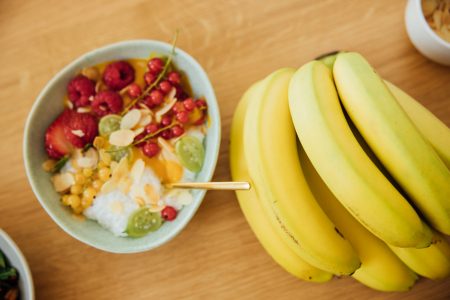
Economical Shopping & Zero Waste Kitchen
One of the leading trends in 2023 is living in harmony with nature and in the spirit of zero waste. What does zero waste actually mean and how to be more eco-friendly and economical at the same time?
Zero waste is a movement that opposes the omnipresent consumerism and waste of products. This involves buying only what is necessary and using it to the maximum extent. We are bombarded more and more with advertisements, promotion offers and slogans screaming “it’s a must-have”.
There are many theories and lots of evidence that prove we are accompanied by the instinct of possessing and accumulating goods from our early years. In addition, as Małgorzata Górnik-Durose states in her book “Psychological aspects of possession – between instrumentality and social utility of material goods”, that anthropology, psychology and sociology have long been providing data confirming that we are biologically and environmentally programmed towards possession. You already know that nature does not favor us, but most importantly, environmental factors mainly intensify our desires.

Below, you will find some of my advice on how to stop over-buying and reduce food waste:
- Avoid shopping when you are hungry. The smell of bread from the bakery or the sight of tasty-looking snacks make it hard for you to resist.
- Make a thorough shopping list. If you use my app, you can generate such a list for any number of days for food ingredients necessary to prepare meals. On the list, you can uncheck those items that you already have at home, so there is no need to buy them. It is a good idea to prepare a list not only for food products, but also for chemical products, textiles and cosmetics for all household members. Remember to take it with you when you go shopping and check off the purchased items. As a result you will avoid buying unnecessary products and curb emotional spending when seeing those special offer signs.
- Shop no more than 1-2 times a week, this will reduce the risk of falling into the trap of unknowingly putting unnecessary products in the basket.
- 2+1 or 3 for 2 offers? Don’t get caught unless these are products that have a long shelf life and that you often use. Wasting food is neither ecological nor economical. When is it worth it? Large packages and multi-packs make sense for products with a long shelf life, such as dry pulses, groats, pasta, flour, cereals, salt, spices, tea, etc.
- Are all offers bad? If you have the time to check what’s on offer before shopping, you can plan your groceries and meals taking into account these special offers. It is also possible in my app thanks to the feature that allows you to exchange ingredients or meals and search for dishes by preferred products. Nevertheless, if you want to be a conscious consumer, check out the offer before shopping. Today, many stores publish various types of online leaflets in advance. It is a good idea to have a look at them when creating a shopping list.
- Do your shopping online. However, pay attention to how the store packs your goods and whether it uses plastic bags.
- Take your own reusable bag when shopping.
- Do not put fruit and vegetables in plastic bags. Small reusable cotton bags are much better not only for the environment, but also let your veggies breathe.
More and more stores are starting to take food waste seriously. Therefore, you can find specially marked shelves with products with a short expiration date but still good for consumption, or imperfect fruit and vegetables. You can often buy these products at a much lower price. This way, not only do you not waste and fulfill one of the 5 principles of the zero waste movement → Reduce, but you also take care of your home budget. Zero waste is also about Reusing. According to this rule, it is worth, for example, to go for reusable packaging, instead of buying water in small bottles, choose the filtered one and pour it into your water bottle, which I wrote about HERE. Rot and Recycle are key aspects of the functioning of every home. Remember to segregate garbage, it’s so simple and important at the same time. If you have no idea how to reuse a product, I recommend getting inspiration from your local zero waste organization, like the Polish Zero Waste Society (HERE). Refuse is the last rule and if you want to fulfill it, all you need to do is, for example, avoid buying something you don’t need during some special offer week, refuse to pack shopping in unnecessary bags or to add single-use cutlery to your takeaway order.
In my catering offer, we try not to waste food, properly segregate waste or even produce herbs ourselves. What’s more, we do not use plastic cutlery and we have ecological packaging, see for yourself HERE.

We implement the zero-waste philosophy not only in our catering offer. It’s similar in my app (check it out HERE). How is this possible? When arranging menus, the nutritionists try to plan ingredients so that they can be used to the maximum. It is obvious that each of you needs different portions, so it is not always possible to do it fully, but here we have a solution. In the app, we have the option of exchanging an ingredient, a dish, and even the whole day. Users can also copy the menu for another day. In this way, not only can you make better use of the products, but also take advantage of the offers in your store and look for dishes in the app that contain the ingredient you bought.
You already know how to shop, but what about cooking? I’m in my element in the kitchen and, apart from physical activity, cooking is a great pleasure for me. I know that not everyone likes to cook, but I recommend trying because it’s really worth it! Read my post about avocados (HERE). Check out my protips on how to cook without wasting:
- Plan your portions → eyeballing ingredients is a thing of the past. In this way, not only will you not waste, but you will also limit your overeating,
- One meal for all?! Yes, yes, I am a mother myself and I know it’s not easy when everyone likes something different. However, if you have the opportunity, try to prepare meals that the whole family can eat, and the only thing you change is the proportions of ingredients on the plate so as to adapt the meal to the needs of a child,a woman or an athlete.
- Cooking for two days?! If it helps limit your waste, then why not? You will not only save products, but also time.
- Proper storage is the key to success in not wasting food. Remember that you can freeze the extra portions that are left after lunch or dinner (e.g. meat, fish, dumplings), preserve them (e.g. soups), or store them for a short time in the fridge in appropriate, airtight packaging.
To sum up, zero waste means conscious shopping, rational product management, proper food storage or skillful use of what we already have, remembering to segregate waste and trying not to produce more. Zero waste positively affects the home budget, the environment, and our body when you do not overeat thanks to planning meals. Zero waste forces a creative approach to life, allows you to develop creativity and gives a lot of satisfaction. I do hope these examples inspire you to introduce some positive changes into your habits!

Zero Waste in practice:
- Banana peel → fertilizer for plants.
- Coffee grounds → body scrub.
- Apple peels → ingredients for making homemade apple cider vinegar.
- Jars from purchased food → use for home canning.
- Packed lunch in a box → instead of a sandwich in paper and cling film.
- You don’t wear some of your clothes anymore or your children have grown too fast? → give your clothes to those who may need them.
- You have a lot of food left → put it into your local community fridge or share with your friends and neighbors.
I am curious about your ideas for being zero waste. If you have some tips on how not to waste, I’m waiting for them in the comments section!
Bibliography:
- Górnik-Durose M. Psychologiczne aspekty posiadania — między instrumentalnością a społeczną użytecznością dóbr materialnych. Wydawnictwo UŚ. 2002. ISBN:83-226-1222-2
- https://zero-waste.pl/ data wejścia: 16.02.2023









Comments No Comments
Join the discussion…